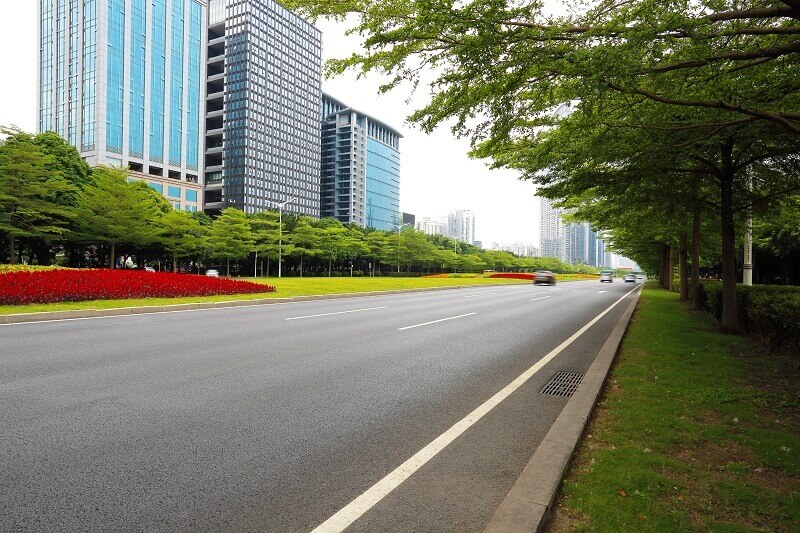Balancing Act: Environmental Impact and Sustainability in Asphalt Paving
by siteadmin

Asphalt paving is a vital component of our transportation infrastructure, providing smooth and durable surfaces for roads, highways, parking lots, and more. However, as essential as asphalt is for modern mobility, its production and use can have environmental implications, including noise pollution and air quality concerns. In this blog post, we’ll explore the environmental impact of asphalt paving, particularly its effects on noise pollution and air quality, and discuss strategies for promoting sustainability in the asphalt industry.
Understanding the Environmental Impact of Asphalt Paving
- Noise Pollution: Asphalt paving operations, including the movement of heavy machinery, compaction of asphalt layers, and traffic on paved surfaces, can generate significant levels of noise. This noise pollution not only disrupts local communities but can also have adverse effects on human health, wildlife, and ecosystems.
- Air Quality: The production of asphalt involves heating and processing aggregates and bitumen, which can release pollutants such as volatile organic compounds (VOCs), particulate matter (PM), and greenhouse gases (GHGs) into the atmosphere. Additionally, emissions from construction equipment and vehicle traffic on asphalt surfaces contribute to air pollution.
Strategies for Mitigating Environmental Impact
- Noise Reduction Techniques: To mitigate noise pollution from asphalt paving activities, several strategies can be employed, including:
- Implementing quieter construction equipment and techniques, such as using noise-reducing mufflers and sound barriers.
- Scheduling paving operations during off-peak hours to minimize disruptions to nearby communities.
- Utilizing noise-reducing asphalt mixes, such as open-graded or porous asphalt, which absorb and attenuate sound.
- Emission Control Measures: To address air quality concerns associated with asphalt production and paving, the following measures can be implemented:
- Adopting cleaner production technologies and practices, such as using warm mix asphalt (WMA) technology to reduce energy consumption and emissions during asphalt production.
- Implementing dust control measures, such as watering down dusty areas and using dust suppressants, to minimize particulate matter emissions during construction activities.
- Promoting the use of low-emission construction equipment and vehicles, including electric or hybrid-powered machinery, to reduce exhaust emissions.
Promoting Sustainability in Asphalt Paving
- Recycling and Reuse: Embracing sustainable practices, such as asphalt recycling and reuse, can significantly reduce the environmental impact of asphalt paving. Reclaimed asphalt pavement (RAP) can be incorporated into new asphalt mixes, reducing the need for virgin materials and conserving natural resources.
- Green Infrastructure Integration: Integrating green infrastructure elements, such as permeable pavements, bioswales, and vegetated roadside buffers, into asphalt paving projects can help mitigate environmental impacts by promoting stormwater management, improving water quality, and enhancing biodiversity.
- Life Cycle Assessment (LCA): Conducting life cycle assessments of asphalt paving projects can provide valuable insights into the environmental impacts associated with each stage of the pavement’s life cycle, from raw material extraction to construction, maintenance, and end-of-life disposal. This holistic approach enables informed decision-making and the identification of opportunities for improvement.
Asphalt paving plays a critical role in our transportation infrastructure, but its environmental impact cannot be ignored. By addressing issues such as noise pollution and air quality concerns and promoting sustainability through innovative technologies, practices, and policies, we can minimize the environmental footprint of asphalt paving while maintaining the integrity and functionality of our roadways. As we strive to build a more sustainable future, balancing the needs of mobility with environmental stewardship is essential for creating resilient and livable communities.
Interested in expanding your knowledge of asphalt paving? Here’s another relevant article just for you! Effective Maintenance Strategies for Paving
Asphalt paving is a vital component of our transportation infrastructure, providing smooth and durable surfaces for roads, highways, parking lots, and more. However, as essential as asphalt is for modern mobility, its production and use can have environmental implications, including noise pollution and air quality concerns. In this blog post, we’ll explore the environmental impact…
Recent Posts
- Balancing Act: Environmental Impact and Sustainability in Asphalt Paving
- Smooth Moves: Asphalt Paving Maintenance Strategies for Sustaining Smoothness
- Innovating Asphalt Paving: Exploring Advanced Asphalt Mix Design Methodologies
- The Importance of Pothole Repair: Health Impacts of Pothole-Related Accidents
- Understanding Chemical Exposure and Its Impact on Asphalt Degradation
